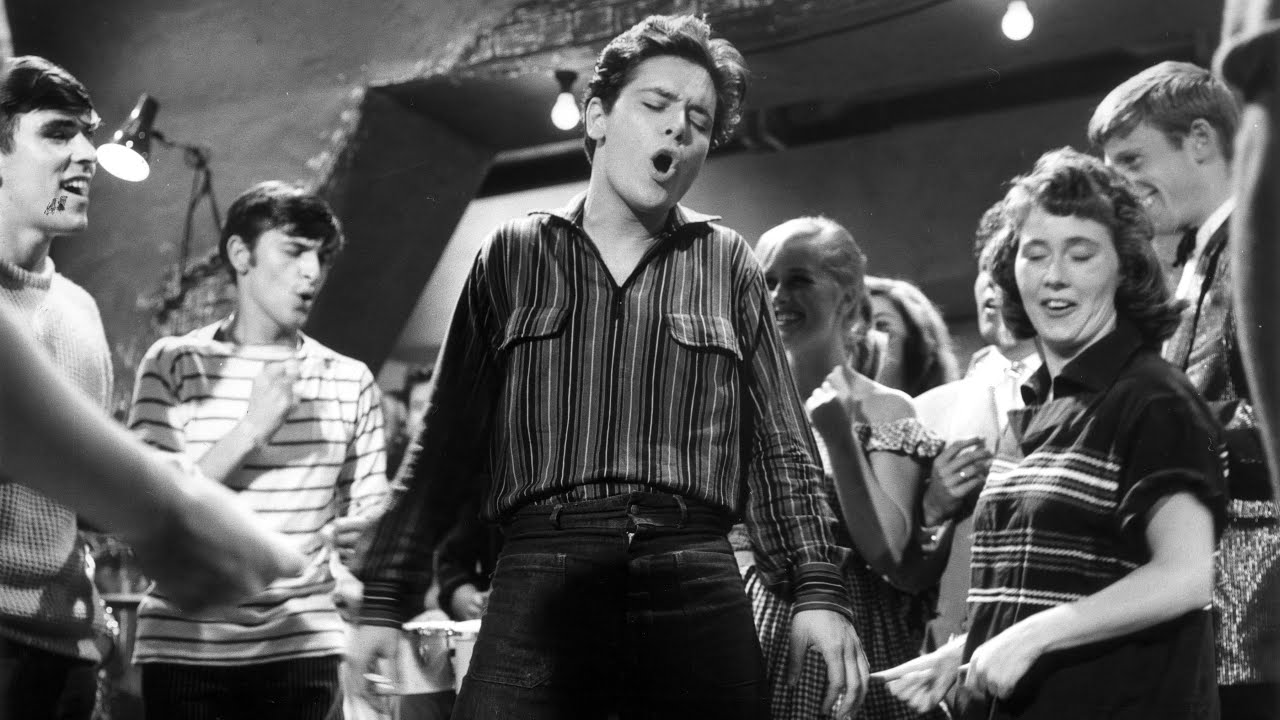Wex’s Cinema Revival Celebrating Film History

Wex’s Cinema Revival Celebrating Film History
By Melissa Starker, Creative Content & PR Manager, Wexner Center for the Arts
Photo via Expresso Bongo
Cinema has a power worth preserving. For proof, consider film history under the Nazi Party.
In 1934, Adolf Hitler commissioned German filmmaker Leni Riefenstahl to give the glamour treatment to that year’s Nuremberg Rally. The film that resulted, Triumph of the Will, is still considered one of the most successful works of propaganda ever made.
Recognizing that ability of film to move the masses, Hitler tightly controlled moviemaking in Nazi Germany and later attempted to erase film history by targeting archived prints in occupied France. His ultimate failure on the last front can be credited to the dogged—and awesomely sneaky—efforts of Henri Langlois, the Paris-based archivist now seen as the godfather of film preservation.
With Cinema Revival: A Festival of Film Restoration, the Wexner Center for the Arts celebrates the continued efforts of preservationists to keep movie history alive and accessible by maintaining libraries and rescuing film prints from the ravages of time. Now in its third year, the annual program returns to the Wex February 22-26 to connect Columbus movie lovers with leaders in the field and present lovingly restored films on the big screen.
According to David Filipi, Director of Film/Video, the modern preservation movement picked up steam following the National Film Preservation Act, a set of laws that began rolling out in 1988 to create guidelines and directives for identifying and saving “films that are culturally, historically, or aesthetically significant.”
As Filipi explained, film preservation came into the mainstream when a pristine director’s cut of the David Lean epic Lawrence of Arabia debuted the same year, following two-plus years of restoration work. The movement found an A-list champion in Martin Scorsese in 1990, when he created The Film Foundation to protect global film treasures.
As part of this year’s program, the Wex will host a discussion with the Executive Director of The Film Foundation, Margaret Bodde, on Friday February 24 at 7 p.m.
“We’re really excited to welcome Margaret for the first time,” Filipi said. “The Film Foundation has done so much for film preservation around the world and I think the audience will really enjoy hearing from her about the foundation’s work.”
The fest will also host two experts from The Criterion Collection, a force in restoring films for cinemas and home viewing. On Friday, February 24 at 5 p.m., Audio Supervisor Ryan Hullings will shine a light on sound restoration through case studies featuring music by The Beatles in A Hard Day’s Night, Bob Dylan in Don’t Look Back, and The Who in Quadrophenia. Technical Director Lee Kline will follow Saturday, February 25 at noon to present the must-see 1945 film noir Mildred Pierce, starring Joan Crawford.
Another featured guest is a Columbus-based player in the preservation movement: Tim Lanza, President and Archivist of Cohen Film Collection, the classics division of independent film distributor Cohen Media Group. On Sunday, February 26 at noon, he’ll intro Expresso Bongo, a new restoration of a 1959 British film that follows a sleazy talent agent’s attempts to exploit a bongo-playing sensation played by then-pop star Cliff Richard.
Lanza worked with the British Film Institute on the restoration, and in the course of communications discovered that some musical numbers had been cut out of the film for its initial release. The restored version includes five songs never seen before by moviegoers.
Expresso Bongo is one of two programs on the 26th to be paired with a fun add-on. Moviegoers coming to the film can set the right mood early by grabbing some espresso, pasties and a set of bongos to join a drum circle hosted by Columbus Percussion, starting at 11 a.m. And anyone attending the 4 p.m. screening of 1985’s Tampopo, a Japanese “ramen Western” with a major following among foodies, can pay a little more to have a to-go bowl of ramen from Fukuryu Ramen waiting after the film.
Single tickets for Cinema Revival are $8, or $6 for members, students and seniors. The Wexner Center for the Arts is located at 1871 N. High St. on The Ohio State University Campus. For the complete festival schedule and more info, go to wexarts.org.
BROUGHT TO YOU BY




